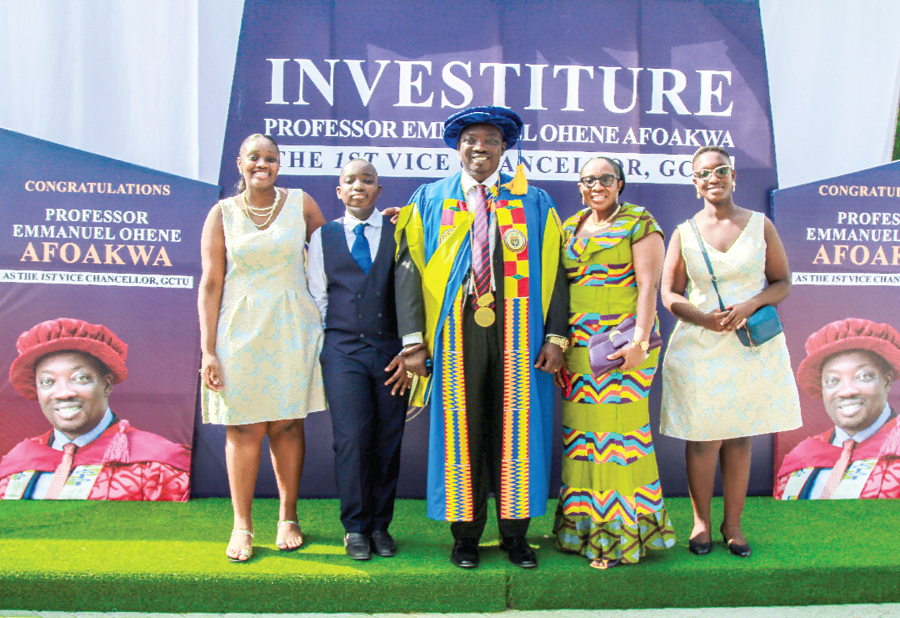
Prof. Afoakwa inducted as first GTUC Vice-Chancellor
The Ghana Communications Technology University (GCTU) has inducted Professor Emmanuel Ohene Afoakwa as its maiden Vice-Chancellor, a year after becoming a fully, fledged public university.
Prof. Afoakwa will serve four years in that capacity to steer the affairs of the university which is expected to train the next generation of Information Communications Technology (ICT) professionals in the country.
Speaking to the Daily Graphic in an interview at the Tesano campus of the GCTU last Monday, Prof. Afoakwa said his investiture, last Saturday, marked the beginning of a transformational drive, to make the institution the centre of ICT excellence in the country.
"My vision is to reposition GCTU as the leading institution for the training of the much needed technology-oriented human resource and ICT skilled personnel for the current wave of technological digitisation, digitalisation and electronic transformation in Ghana and for the entire West African sub-region," he said.
Prof. Afoakwa was speaking to the Daily Graphic to outline his vision for ICT education to augment the government’s efforts in transforming the economy with digitisation as the springboard.
As part of the restructuring activities, he said the management of the university had worked hard over the past to develop 16 new programmes in ICT and submitted them to the Ghana Tertiary Education Commission (GTEC) for assessment and accreditation.
"Now is the time for GCTU to take its place in shaping the lives and destinies of the young people of this country. We must play our part fully towards realising our developmental aspirations as a country," he said.
He added that, "we must shape the future for those who will come after us. Our history tells us that we are a university that matters because of our ability to adapt to change and meet the needs of society and now is not the time to be complacent, now is the time to imagine the possibilities, and to act," Prof. Afoakwa said.
Future endeavours
Outlining the future plans of the university, Prof. Afoakwa said the university was established to provide a viable centre of higher education in ICT and to undertake research in that area.
"We are going to adhere strictly to that," he said.
He said the institute’s resilience, demonstrated in the face of many challenges, including the recent global COVID-19 pandemic, was evident that it had the required energy and vibrancy to push to new and greater heights, to shape the future in new and exciting ways.
"Strategically, with the support of council, we have initiated the process to restructure the entire university into a Collegiate System (made up of three colleges, namely the College of
Computing Systems and Technology, College of Communications Engineering and the College of Business and Technology) with the introduction of many cutting-edge programmes in various disciplines in ICT at the undergraduate, master’s and doctorate levels," he said.
Infrastructure
Prof. Afoakwa said already, the university had begun a visionary drive to transform existing infrastructure on its campus to world-class facilities.
However, he said a lot more was needed to position the institution as the preferred choice for ICT education in the country.
"Our planned expansion in programmes, partnerships and collaborations will mean an urgent need for infrastructural development," he said.
Prof. Afoakwa explained that the plan was to project an upward development for the university, making good use of both the ground space and the airspace.
